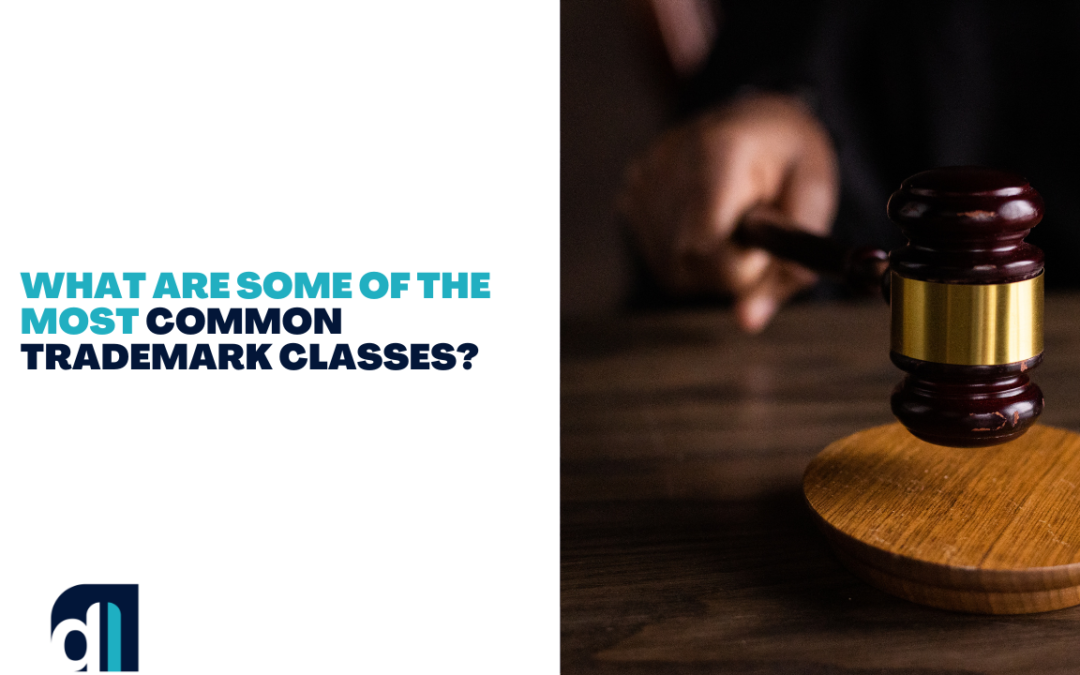Trademarks play a key role in the diverse world of trade and commerce because they represent brands in the marketplace. Having a registered trademark grants you the legal protection and ownership you need to survive in such a competitive marketplace. Whether they are symbols, logos, the name of the brand, or even slogans, they are meant to distinguish one business entity from another.
Primarily, you file a trademark application with the United States Patent and Trademark Office (USPTO) whose approval officially grants you the legal protection you need for your trademark. To apply, the pivotal role is played by the trademark classes – where each class represents a specific type of product or service.
This blog will help you understand that classification system, but most importantly, the common ones so that you know what they have to offer to you when you go to register your trademark.
What are Some Common Trademark Classes?
The international trademark class system is based on the categorization of the Nice Classification in which you’ll find a total of 45 classes. The first 34 classes deal with goods, while classes 35 to 45 are related to services.
The classification system is done in a manner that it is easier for businesses to identify the nature of their products or services and accordingly, file their trademark application in the relevant class. Here are the most commonly applied classes for USPTO applications.
Class 9 – Electrical and Scientific Apparatus
Class 9 is a relevant class for businesses involved in electrical and scientific apparatus, including but not limited to computers, software, downloadable mobile apps, and even NFTs. This class is most suitable for filing your application if your business deals with the tech industry or IT.
One of the benefits of this class is that it not only protects tangible products but also intangible ones such as metaverse commerce. So if your brand has a presence in the metaverse, this is your go-to class. Similarly, if you deal with NFTs, you should apply for trademark protection at the earliest under this category, as there have been conflicts involving the stealing/infringement of NFTs.
Class 25 – Clothing
Class 25 is a trademark application category for fashion and clothing products. Businesses dealing with clothes, footwear, hair accessories, sportswear, and all fashion and apparel-related items protect their logos, symbols, slogans and names in this category.
Classes 29, 30 and 31 – Staple Food
Classes 29, 30 and 31, all cater to food and related items. Businesses dealing in eatery items such as meat, dairy products, coffee, tea, rice, bakery products, and agricultural products, apply for protecting their mark in these classes This is also the preferred class for entities such as restaurants and beverage companies.
Class 32 – Non-Alcoholic Beverages and Beer
Class 32 is designated for non-alcoholic beverages and beer. Brands dealing in products such as juices, sodas, mineral water as well as beer apply for trademark protection in this category.
However, the category doesn’t cover products like milk-based, coffee-based, and even medicinal-based beverages, as they have separate categories.
Class 33 – Alcoholic Beverages
Trademark Class 33, on the other hand, is the official classification for alcoholic beverages. This class has relevance for businesses involved in the production of alcoholic drinks such as wine, liquor, ingredients for cocktails, as well as pre-mixed alcoholic drinks.
The only alcoholic beverage not included in this category is beer, even though it is a related product.
Class 35 – Advertising And Business Services
Class 35 is the category pertinent for businesses engaged in advertising and promotion operations. Services listed under Class 35 include advertising, marketing, and business management.
Class 41 – Education and Entertainment
Class 41 covers a wide array of fields such as education, training, and entertainment services.
Class 42 – Science and Technology
Class 42 is another class that is of interest to businesses providing tech services. Many such businesses also register themselves in this class in addition to class 9, since you can register your trademark in multiple classes.
The class caters to services related to scientific and technological research and development, computer programming, software development, and even biotech firms.
Factors to consider for choosing the correct Trademark Class
Selecting the right trademark class is crucial for safeguarding your brand and the first step in the application process. In this regard, you’ll first need to see the nature of your business, i.e. whether it’s product-based or service-based.
You must know the rules and regulations of the country you are operating in as many countries would have their trademark classification system and own intellectual property laws. Hence, you must be aware of everything beforehand.
However, you don’t need to fret too much about the technicalities. An experienced trademark attorney will ensure that your trademark filing is done in compliance with international as well as national regulations.
Conclusion
Trademark application classes are fundamental in intellectual property protection and having an understanding of the classification system is key to beginning your application process.
At Drishti Law, you can seek the assistance of our experienced principal attorney for all of your queries regarding the trademark classification suitable for your brand. We provide a variety of services that can meet the specific legal needs of your brand.
Book a free consultation today with Drishti Law to learn how we can help you in your USPTO application for registering your trademark.

Sahil Malhotra
Sahil Malhotra is an Intellectual Property Attorney, who founded Drishti (“vision”) law because of his vision in protecting dreams and ideas.
He provided individuals and small businesses with an opportunity to enhance their IP’s value by helping them register trademarks and successfully argue against office actions. In addition to his training and experience, he has been deeply involved in the multifaceted IP portfolio at UIC and continues to be associated with IP organizations and conferences.
To know more about Sahil Malhotra — Click Here
You may follow Sahil Malhotra on Facebook: Sahil Malhotra and on Instagram: @Sahil Malhotra

